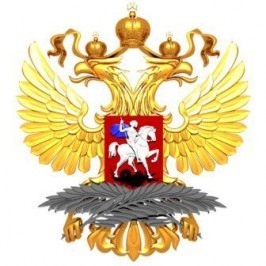Question: Western countries are once again talking about imposing new sanctions on Russia. If they end up doing so, will Russia respond or just ignore them?
Sergey Lavrov: Last I checked, the reciprocity principle was still valid in international relations. Let's wait and see what the new sanctions look like. Of course, we will respond. We cannot leave this without a response. First, it would be wrong in terms of the laws governing diplomacy. Second, we are seeking to limit the negative influence exercised by various Western structures, including states and the numerous NGOs, on our plans and the plans that our allies have.
The Western sanctions have been an eye-opener for us. They started long before the events in Ukraine or the referendum in Crimea. This process can be traced back to the Obama administration, when Edward Snowden found himself on Russian territory. He may have broken the US law, but he was persecuted for exposing activities by US structures, which were totally illegal, illegitimate and in many ways criminal, consisting of using unacceptable approaches abroad and undermining legitimate governments. Since then, we have grown used to sanctions. Reducing our response to all this to the so-called import substitution would be a narrow way of looking at things.
In principle, the geopolitical response over these years consisted of recognising that our Western partners were unreliable, including, unfortunately, members of the European Union. We had many far-reaching plans, and there are documents setting forth the path to developing relations with the EU in the energy sector and high technology, and stepping up economic cooperation in general. We share a single geopolitical space. Considering our shared geography, logistics, and infrastructure across the Eurasian continent, we benefit from a substantial comparative advantage.
It would certainly be a grave mistake for us and the European Union, as well as other countries in this space, including the SCO, the EAEU, and the ASEAN, which is also nearby, not to use our comparative geopolitical and geoeconomic advantages in an increasingly competitive world. Unfortunately, the European Union sacrificed its geoeconomic and strategic interests for the sake of its momentary desire to match the United States in what they refer to as “punishing Russia.” We have grown used to this. We now understand that we need a safety net in all our future plans related to reviving the full partnership with the European Union. This means that we need to proceed in a way that if the EU sticks to its negative, destructive positions, we would not depend on its whims and could provide for our development on our own while working with those who are ready to cooperate with us in an equal and mutually respectful manner.
Question: The Americans are seeking to rally everyone against China, and are sending unambiguous signals to Russia. What do you think about the policy of forging friendships against someone?
Sergey Lavrov: This kind of policy is alien to us. Neither Russia nor China, nor our allies have ever proposed building friendly relations for the sake of opposing someone. The very approach of pitting someone against those you do not like contains an answer to the question of what we think about it. This represents a diplomatic and political culture that is totally different from ours. We want to build good relations with everyone. Whenever we seek stronger ties with anyone, we never require undermining relations with states that have fallen out with Washington or anyone else as a price to pay for cooperation.
I believe that the notion of being “friends against someone” contradicts the very meaning of “friendship.”























